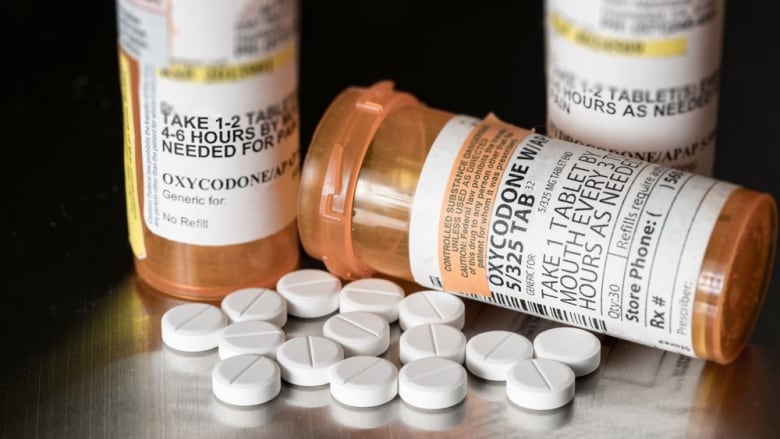Opioid poisonings landing more Nova Scotians in hospital
Between 2008 and 2015, the number of people landing in hospital with painkiller poisoning rose

Think of drug overdoses and a younger, marginalized group tends to come to mind.
Buta recent report from the Canadian Institute for Health Information shows Nova Scotiansover the age of 45account for almost half of hospitalizations for opioid poisonings in the province.
The number of overall cases in Nova Scotia is growing. In 2008, 71 people were admitted to hospital with opioid poisonings andthat number jumped to 111 in 2015.
Paul Sajan, manager of prescription drug abuse at CIHI, says the risk of accidental overdose can be greater in the older age bracket.
"Because seniors are prescribed the most medication, there is an increased risk of accidentally taking too much. You know, accidentally taking a pill for the second time that morning, perhaps forgetting that it has already been taken."
Changing attitudes to opioids
Dr. David Martell is a family physician and addiction medicine provider in Lunenburg, N.S. He says the problem started 20 years ago during a pharmaceutical push to market opioids as very safe and effective.
This came after a long period of time when doctors were unwilling to use powerful painkillers to treat anything other than cancer.
Martellsaidhe and other students who graduated from medical school in the 1990swere taught that nottreating pain was a shame and the risks to painkillers weren't substantial.
"[We] were taught that these medications should be given and they should be given in ever-increasing doses," he said.
At that time, opioids were prescribed for all chronic aches and pains, big or small, with less concern for the long-term, addictive nature of the drugs.
"Heretwenty years later, we're coming to realize that that was a complete fallacy, that we were given a bill of goods,"Martell explained.
Caught in the middle
Patients who were told years ago that opioids were safeand would put them on the road to a pain-free lifeare now caught in the middle.
"Here10 years later, we're deeming it poison, people don't know what to believe," said Martell.
Doctors also have the challenge of getting patients off of the drugs.
"So we have a difficult clinical situation in that the patient still has chronic pain, but doesn't really know what to believe," said Martell.
Dr. Sarah Wallingford of the Canadian Centre on Substance Abuse says opioids do have a place when managing chronic pain, but they may not be for everyone.
"This was a solution that was on-hand at the time and continues to be one of the best ways to treat pain for this age group [of older adults].
"Although, of course, there are other options available and more and more we're seeing that health care providers are looking to have an open discourse with their patients to figure out what's the best fit for the person."
More research needed
Martell thinks more studies need to be done to best understand the opioid crisis in Canada and how to fix the problem before it gets worse.
These figures from 2015, for example, pre-date the the explosion of fentanyl abuse in recent years.
"I think they'd have to look again at the data through another period of time that includes illicit fentanyl use. Especially, not so much prescribed fentanyl, but fentanyl that arrives in powder from Asia," Martell said.
Alsomissing from the report are the people who never make it to hospital at all.
"You may not see in these statistics any evidence of what's happening in the current opioid crisis, because the statistics wouldn't include people who died, who never made it to hospital," Martell said.












_(720p).jpg)


 OFFICIAL HD MUSIC VIDEO.jpg)
.jpg)



























































































